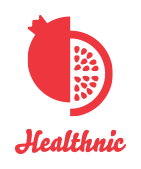3. Implementation Part
3.1 Preparation – Instructions to the workshop facilitator
3.1.1 Participants
As we mentioned before, the workshop series is addressed to people with different cultural and social backgrounds. We focus on people that are in danger of social exclusion and need support in order to feel and become integrated. It is a process that will be achieved by gaining skills, by sharing cultural aspects and through this by appreciating one’s own cultural heritage and the one of the other.
The workshop is aimed at a mixed group consisting of immigrants, refugees and long-term unemployed people that want to explore the value of food traditions, the dynamics that they create in a multicultural society and to gain basic skills that empower their self-esteem and their position to the job market.
It is preferable to have an equal number of participants from each target group in order to achieve diversity under a balanced cultural heritage. Working with a diverse group will get the “creative juices” flowing, opens the mind to new ideas and consequently opens up new opportunities. Overall these 3 22 are the essential elements in the workshops where the contribution of each individual and accordingly of the whole group can produce results that can motivate other people to follow the same path.
Also, the facilitator should take into consideration the gender of the participants, and try to enroll an equal number of men and women to avoid a significant gender gap.
